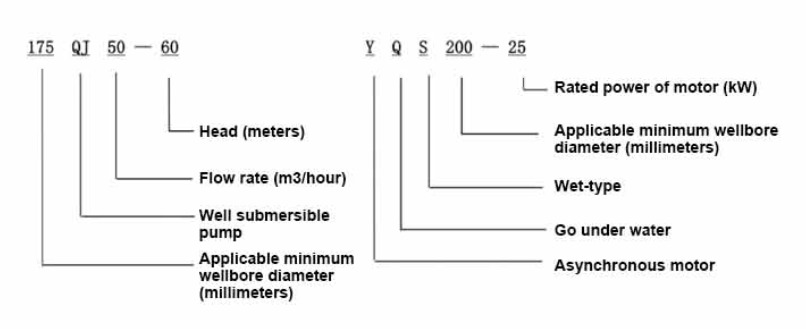Nov . 05, 2024 23:18 Back to list
Compact Submersible Well Pumps for Efficient Water Solutions in Tight Spaces
Understanding Two-Inch Submersible Well Pumps A Comprehensive Guide
When it comes to water extraction from deep underground sources, two-inch submersible well pumps have become a popular choice for both residential and agricultural uses. These compact and efficient machines are designed to operate submerged in water, providing optimal performance while maintaining a small footprint. In this article, we will explore the functionality, advantages, specifications, and installation considerations of two-inch submersible well pumps.
What is a Submersible Well Pump?
A submersible well pump is a type of pump that is submerged underwater in a well to lift water to the surface. Unlike jet pumps, which require priming and are usually installed above ground, submersible pumps are designed to be placed deep within the well casing. As they are submerged, they are not susceptible to airlock problems, making them highly efficient in water extraction.
Why Choose a Two-Inch Submersible Well Pump?
The two-inch configuration has gained traction for several reasons
1. Space Efficiency With a diameter of only two inches, these pumps can fit into narrow well casings, making them suitable for many older wells that may not accommodate larger pumps.
2. High Efficiency Modern two-inch submersible pumps are engineered to be energy efficient. Their design emphasizes reducing power consumption while maximizing water output, which is particularly advantageous for long-term projects or in remote areas where energy use needs to be minimized.
3. Durability and Longevity Most two-inch submersible well pumps are made from high-quality materials that resist corrosion, wear, and tear, fostering a longer lifespan. Components are often crafted from stainless steel and thermoplastic to endure harsh conditions.
4. Minimal Maintenance Since these pumps operate submerged, they’re less exposed to external elements, resulting in lower maintenance requirements over time. Proper installation and setup can further reduce the chances of mechanical failure.
Specifications to Consider
When selecting a two-inch submersible well pump, it’s essential to consider several key specifications
two inch submersible well pumps

- Flow Rate This is the volume of water the pump can move, typically measured in gallons per minute (GPM). Your specific needs will dictate the appropriate flow rate.
- Total Dynamic Head (TDH) This refers to the total height that the pump can effectively lift water, factoring in the depth of the well and any friction loss in pipes. Knowledge of TDH is crucial to ensure that the pump selected meets your needs.
- Power Two-inch submersible pumps vary in horsepower, generally ranging from 0.5 HP to 3 HP. The power required will depend on the flow rate and TDH calculations.
- Volt Rating Most pumps are available in both 110V and 230V options. The choice may depend on your existing electrical systems and how far the pump will need to reach to supply water.
Installation Considerations
Installing a two-inch submersible well pump requires careful planning and execution
1. Depth and Casing Size Before installation, measure the depth of the well and confirm that it is compatible with a two-inch casing. This ensures sufficient space for the pump.
2. Electrical Supply Ensure you have the correct electrical supply, and consider hiring a certified electrician to handle wiring and connections, complying with local safety codes.
3. Pump Placement Proper placement within the well is crucial to avoid running the pump dry, which can cause burnout. The pump should be positioned above the bottom of the well and within the water source.
4. Testing After installation, conduct thorough testing to confirm that the pump is functioning correctly, checking for leaks, flow rates, and overall efficiency.
Conclusion
Two-inch submersible well pumps stand out as a reliable and efficient solution for extracting groundwater in tight spaces. They offer excellent performance with minimal maintenance, making them ideal for various applications. With the right selection and installation, a two-inch submersible well pump can serve effectively for years, ensuring a steady supply of water where it's needed most. Understanding your specific requirements and consulting with experts can ensure you choose the right pump for your needs, enhancing both utility and longevity.
-
Submersible Water Pump: The Efficient 'Power Pioneer' of the Underwater World
NewsJul.01,2025
-
Submersible Pond Pump: The Hidden Guardian of Water Landscape Ecology
NewsJul.01,2025
-
Stainless Well Pump: A Reliable and Durable Pumping Main Force
NewsJul.01,2025
-
Stainless Steel Submersible Pump: An Efficient and Versatile Tool for Underwater Operations
NewsJul.01,2025
-
Deep Well Submersible Pump: An Efficient 'Sucker' of Groundwater Sources
NewsJul.01,2025
-
Deep Water Well Pump: An Efficient 'Sucker' of Groundwater Sources
NewsJul.01,2025
-
 Submersible Water Pump: The Efficient 'Power Pioneer' of the Underwater WorldIn the field of hydraulic equipment, the Submersible Water Pump has become the core equipment for underwater operations and water resource transportation due to its unique design and excellent performance.Detail
Submersible Water Pump: The Efficient 'Power Pioneer' of the Underwater WorldIn the field of hydraulic equipment, the Submersible Water Pump has become the core equipment for underwater operations and water resource transportation due to its unique design and excellent performance.Detail -
 Submersible Pond Pump: The Hidden Guardian of Water Landscape EcologyIn courtyard landscapes, ecological ponds, and even small-scale water conservancy projects, there is a silent yet indispensable equipment - the Submersible Pond Pump.Detail
Submersible Pond Pump: The Hidden Guardian of Water Landscape EcologyIn courtyard landscapes, ecological ponds, and even small-scale water conservancy projects, there is a silent yet indispensable equipment - the Submersible Pond Pump.Detail -
 Stainless Well Pump: A Reliable and Durable Pumping Main ForceIn the field of water resource transportation, Stainless Well Pump has become the core equipment for various pumping scenarios with its excellent performance and reliable quality.Detail
Stainless Well Pump: A Reliable and Durable Pumping Main ForceIn the field of water resource transportation, Stainless Well Pump has become the core equipment for various pumping scenarios with its excellent performance and reliable quality.Detail
